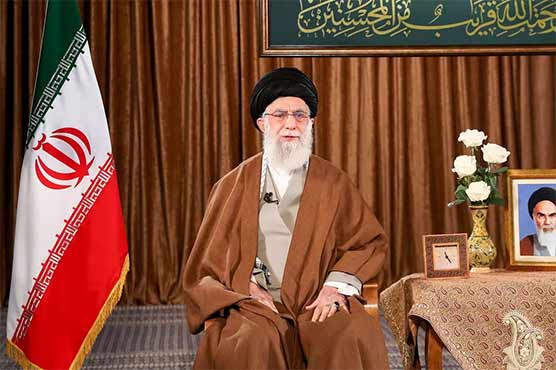Iran says no to US coronavirus aid, arguing US might have created it

Iran is one of worst affected countries in the global pandemic and the need to keep people at home.
TEHRAN (Reuters) – Iran will not be accepting any US aid to help turn the tide in the fight against the novel coronavirus, said Supreme Leader Ayatollah Ali Khamenei on Sunday as he repeated speculation that the virus was a weapon created by the US to use against its enemies.
Iran is one of the worst affected countries in the global pandemic and the need to keep people at home in an effort to control the spread has prompted authorities in Tehran to shut down most stores.
"We have many enemies, but the worst is the US ... and now they want to help us," said Khamenei during a speech broadcast on national TV.
He said the US would be better off helping its own people, with hundreds of American deaths being linked to the virus after a spike in cases in the last week.
The Iranian Health Ministry reported that the death toll in the country has hit 1,556 as of Saturday, with the number infected by the virus reaching above 20,000. The virus, which can cause people to develop the potentially deadly respiratory disease Covid-19, began spreading in China late last year.
In rejecting the US aid, Khamenei highlighted the theories that the virus was a US product designed to weaken enemies like China and Iran.
"Under these circumstances, one should not pay any attention to offers like this one," he said, referring to the offer of US assistance.
Since February, Khamenei has said the virus could be a biological attack made in America.
He said he expects Iranians to stick to guidelines released by the Health Ministry and to tolerate the fact that Iran s holy cities have been shut down in a bid to stop the disease s spread.
He noted that such a situation had never before happened, but still urged people to follow guidelines.
The address - to mark Nowruz, the Persian new year - was made from Khamenei s residence. Usually he delivers it from the mausoleum of the Shiite imam Resa in Mashhad, but the event was moved to minimize the chance of contagion.
"Iran has proven in the last 41 years that this country has the potential to master all disasters, and this will be the case again this time," he said.
Although he is the country s supreme leader, Khamenei sometimes clashes with the country s more secular government. However, the government has also rejected offers of US assistance, arguing that the US could do more to help if it lifted its sanctions, freeing up Iranian resources to fight the virus on its own.
The US laid down the sanctions to punish Iran for its push for nuclear weapons. Iran says it has given up its weapons programme and has sought to work with other international partners over a deal to lift sanctions.
There are concerns in Iran that infection numbers could spike in the near future due to Nowruz, which often sees families take long trips to visit relatives. The holiday ends on April 2 this year but people are being urged not to travel.
Other Iranian measures to fight the virus include Sunday s new shopping restrictions in the capital Tehran, where only larger supermarkets and chemists can remain open.
In comments carried by the Isna news agency, city officials said police checks will be implemented to ensure compliance. Shortly after the announcement, however, smaller markets and other stores could still be seen operating in Tehran.

